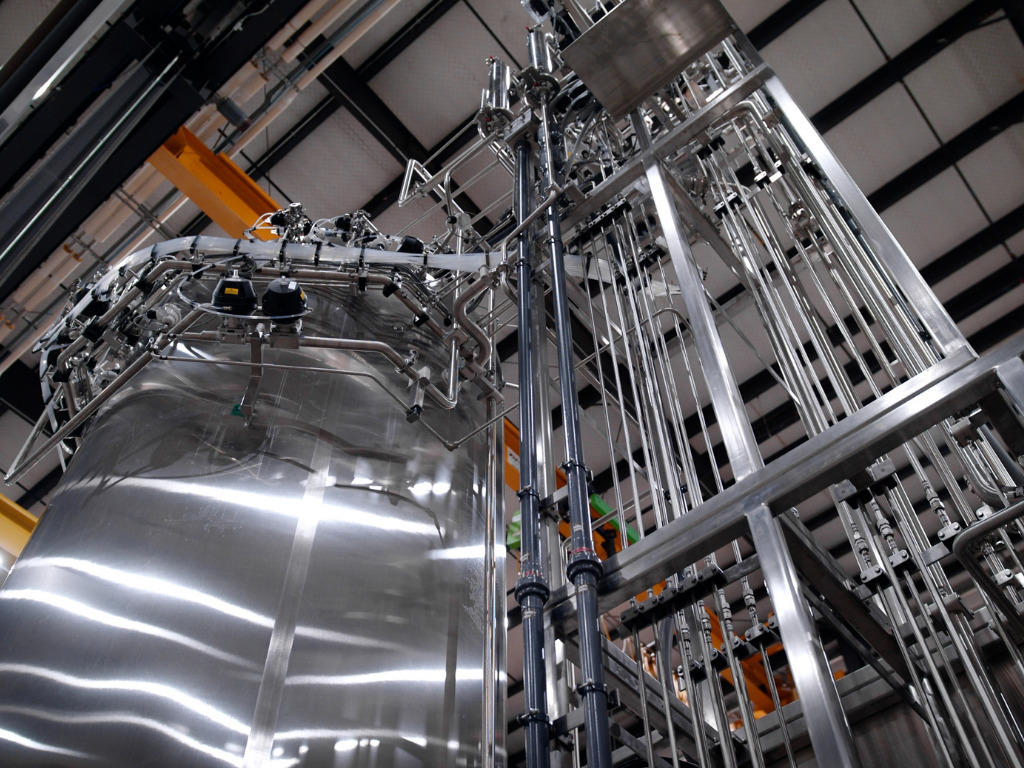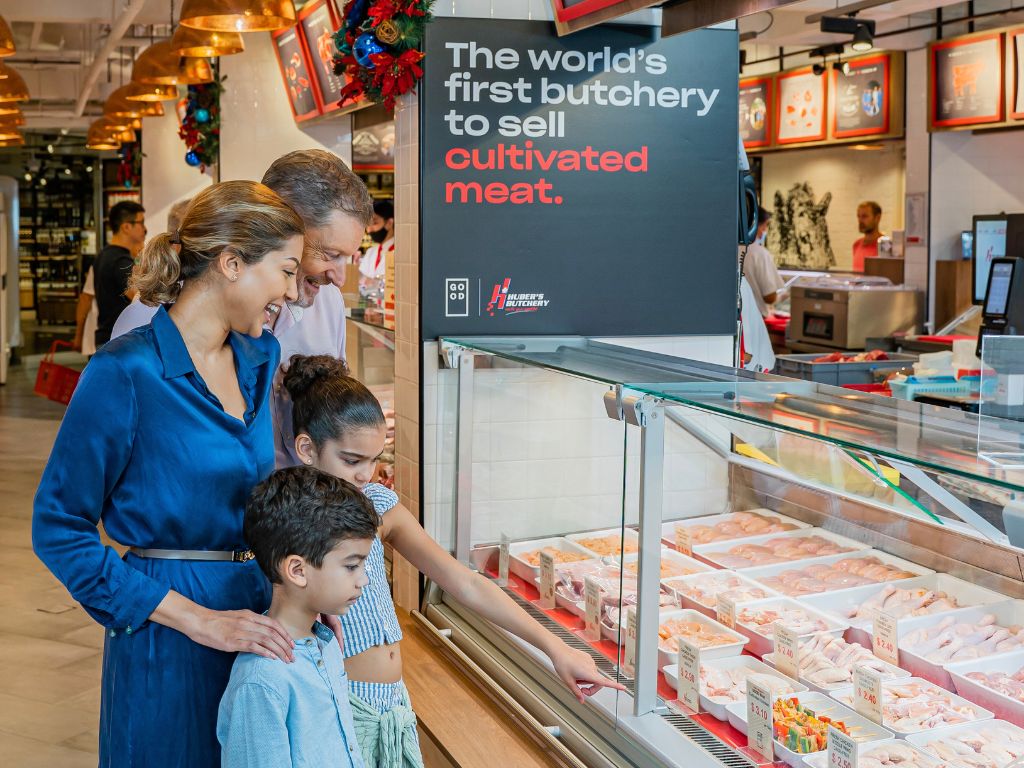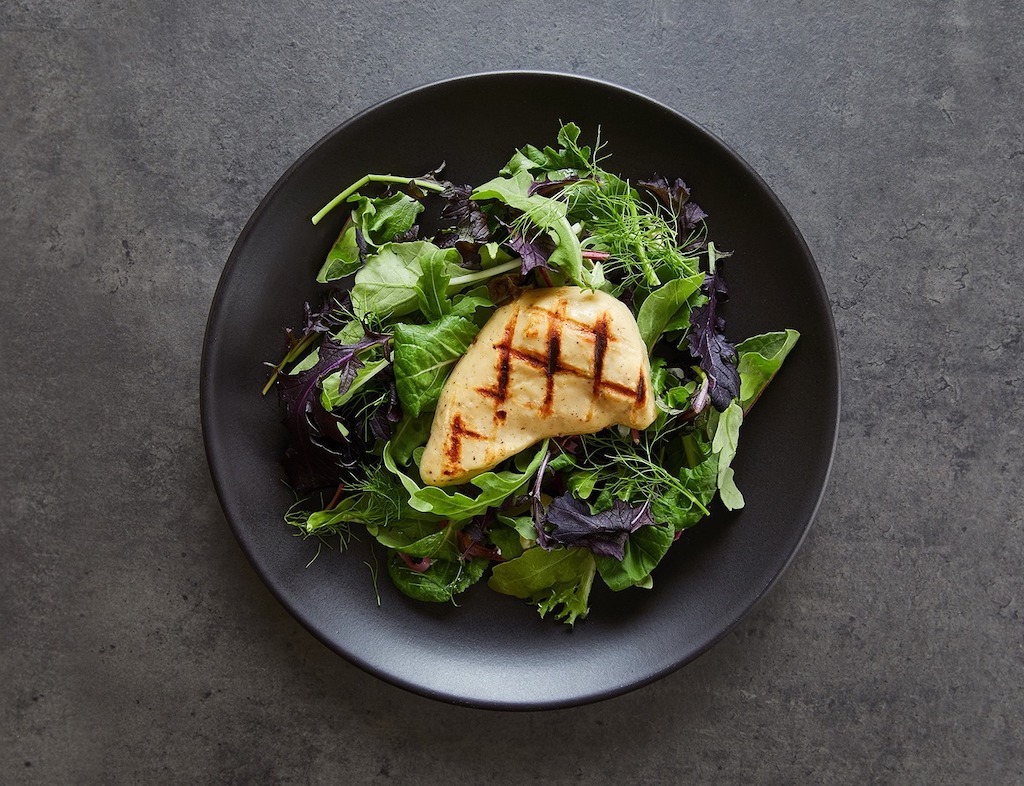3 Mins Read
Good Meat, the cultivated meat division of San Francisco’s Eat Just, has secured the world’s first regulatory approval for a serum-free media.
The Singapore Food Agency (SFA) has granted Eat Just approval for its new media used for its cultivated meat. Eat Just’s Good Meat cultivated chicken was the first in the world to receive regulatory approval for sale and distribution by SFA in 2020.
Serum-free media
Eat Just says the approval of the new serum-free media will lead to greater scalability while lowering its manufacturing costs. The company says it will also make its cultivated meat more sustainable.
“Not too long ago, observers thought removing serum was a major limiting step to scaling cultivated meat. I could not be prouder of our team for doing just that and receiving approval to commercialize it this week. It’s yet another step forward for our company, the cultivated meat industry and the health of our planet,” Josh Tetrick, co-founder and CEO of Eat Just, said in a statement.

Cultivated meat has historically relied on fetal bovine serum (FBS), a controversial growth media that kept livestock tied to the meat’s production. A growing number of cultivated meat manufacturers have been working to develop viable alternatives in anticipation of widespread regulatory approval. Upside Foods, another Bay Area cultivated meat producer, earned FDA GRAS status late last year — the first step toward U.S. approval.
According to recent findings published in the journal Communications Biology cultivated meat holds the potential to reduce land use by 90 percent, reduce water use 75 percent, while producing 75 percent fewer greenhouse gas emissions.
The research also found that FBS, the most common growth media, is responsible for 99 percent of the cost of current cultivated meat production systems. FBS is a “notoriously expensive, unsustainable, and inconsistent component, which is inherently antithetical to the aims of cultured meat,” the researchers noted.
Eat Just’s approval comes on the heels of its expanded production efforts in Singapore. The company is adding bioreactors, including the largest one in the cultivated meat industry, to its Singapore production center that will allow it to scale up to “tens of thousands of pounds” of cultivated meat per year.
‘A milestone in scaling’
“We congratulate Good Meat on achieving this milestone in scaling up cultivated meat production. This complements the company’s work in Singapore to build and operate its bioreactor facility where over 50 research scientists and engineers will develop innovative capabilities in the cultivated meat space such as media optimisation, process development, and texturization of cultivated meat products,” said Damian Chan, Executive Vice President of the Singapore Economic Development Board.
“GOOD Meat is a key member of our growing ecosystem of more than 70 alternative protein companies and we look forward to their continued contributions in driving agrifood innovation from Singapore for the region and beyond,” Chan said.

“Today’s announcement is yet another significant step for this cutting-edge industry. AMPS Innovation members continue to advance the food landscape with new methods of producing high-quality, safe products to support commercialization of cultivated meat, poultry, and seafood,” said Robert Rankin, Executive Director, Association For Meat, Poultry And Seafood Innovation.
Mirte Gosker, Managing Director of the Good Food Institute APAC, the industry’s leading think tank, says removing serum from cultivated meat production can drive down costs and “set the stage for expanded commercialization of sustainable protein.”
“Given Singapore’s reputation as a global launchpad for scalable food security solutions, we’re hopeful that other nations will also soon embrace this smarter way of making meat,” Gosker said.




